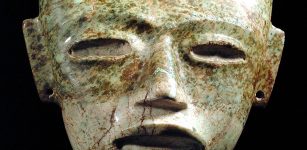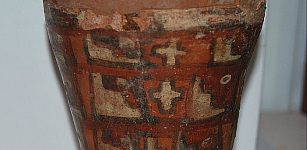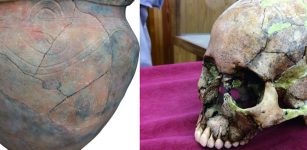On This Day In History: Great Fire Of Rome Recorded – On July 18, 64 AD
AncientPages.com - On the night between 18 and 19 July, 64 AD, a fire broke out in the city of Rome, spread quickly, and finally, it was completely out of control.
Great Fire in Rome by Hubert Robert (1733–1808). A painting of the fire burning through Rome, painted in 1785.
The fire destroyed nearly half of Rome. Later it became known as the Great Fire of Rome because it caused widespread devastation before being brought under control after six days.
Historical accounts of this event vary because they come from three secondary sources, namely from Cassius Dio, Suetonius, and Tacitus.
The Roman historian Tacitus recorded the event:
"First, the fire swept violently over the level spaces. Then it climbed the hills-but returned to ravage the lower ground again. It outstripped every counter-measure. . . Terrified, shrieking women, helpless old and young, people intent on their own safety, people unselfishly supporting invalids or waiting for them, fugitives and lingerers alike--all heightened the confusion."
Some accounts either blame Emperor Nero for initiating the fire or credit him with organizing measures to contain it and provide relief for refugees. Nero responded to the accusations; he blamed the devastation on the Christian community in the city, initiating the empire's first persecution against the Christians.
As the fire blaze out of control, some citizens tried every measure to put out the flames. It is said that the citizens were stopped. Also, some of the mob lit torches and threw them into the flames to feed the fire. Tacitus makes an interesting note about these arsonists who had claimed that
"they acted under orders. Perhaps they had ... or they may just have wanted to plunder unhampered."
Nero heard the news from his Palace at Antium and rushed to Rome just in time to see the Palatine Palace in flames. His newly built mansion, the Domus Transitoria, was nothing but a pile of smoldering ashes. Nero immediately organized a team of firefighters and provided shelter for the panic-stricken people who had been left homeless.
The fire burned for nine days, leaving 10 out of its 14 regions in ruins, with the loss of many lives.
Nero decided that he would blame the Christians, who were already being accused in one way or another within Roman pagan society.
This was officially the time that the active persecution of the Christian Church began. At some point soon after it became a crime to bear the name "Christian" and the suppression of the church became state policy. This persecution would last, off and on, for almost three centuries.
AncientPages.com





















